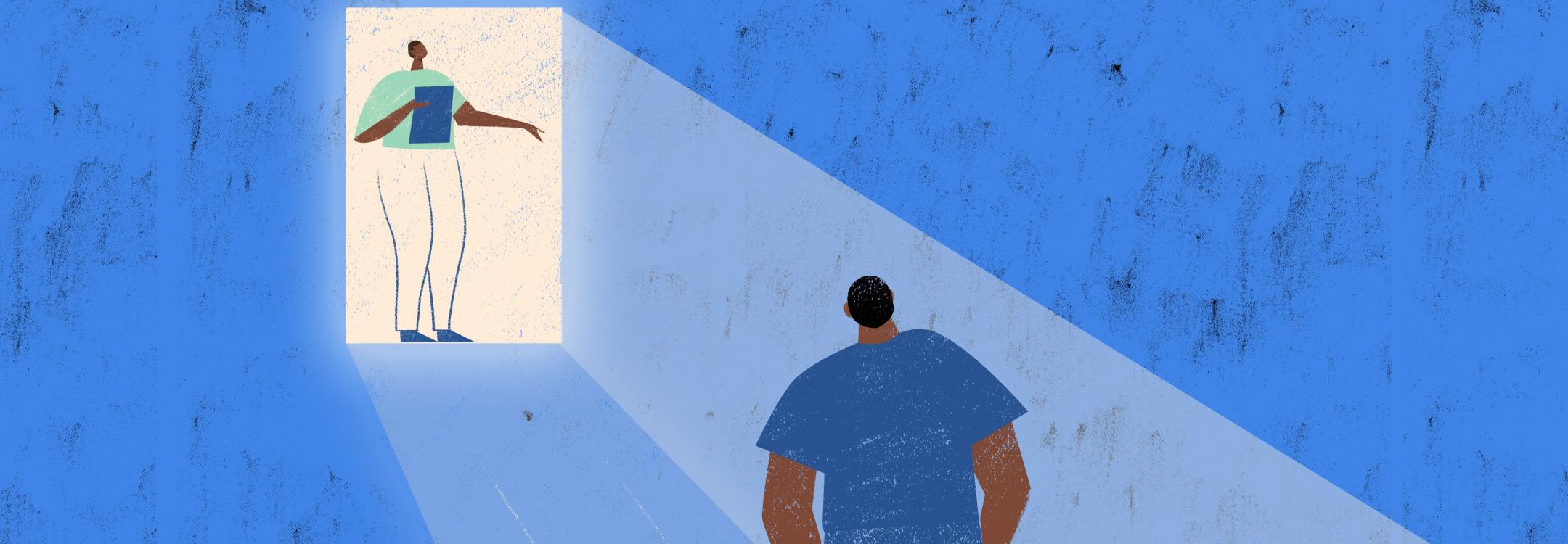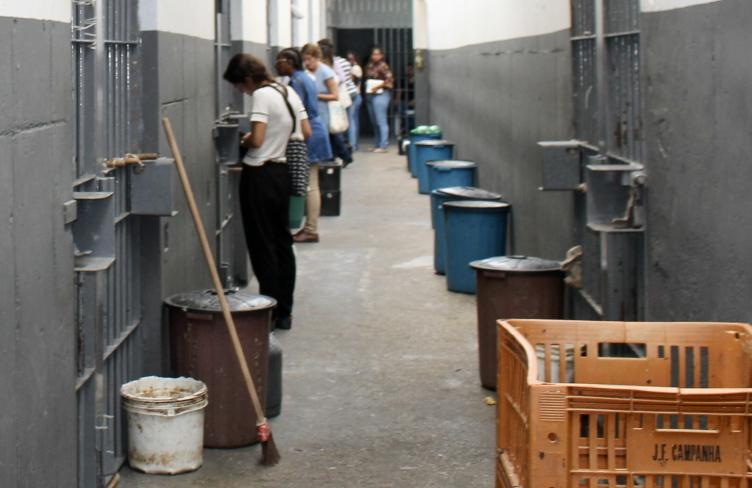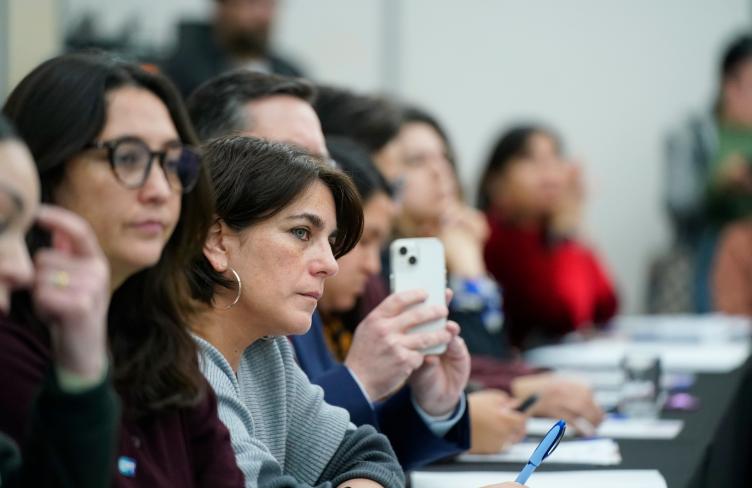
While everyone in detention is vulnerable to abuse and ill-treatment, persons with disabilities can face additional risks. To mark the International Day of People with Disability (3 December), we invited the National Preventive Mechanism of Slovenia to share their insights on monitoring and advocating for the rights of persons with disabilities deprived of liberty.
In 2021, the NPM visited three special social care institutions which provide institutional care services for adults with mental health problems and intellectual disabilities. From what you have seen first-hand, what is the current situation of persons with disabilities deprived of liberty?
With the lack of community assistance options, we find the main problem is the overcrowding in secure wards[1] of (special) social care institutions[2] that provide institutional care for these persons. Despite the NPM’s warnings and recommendations, the situation has not improved significantly. This affects the quality of living of all residents in these wards and presents a great burden for the staff. For example, one of the institutions visited was still accommodating residents in a common room and tried to provide them with as much privacy as possible, while the other, when bed capacity was exceeded, placed beds in a room otherwise used for the implementation of special protective measures.[3]
Based on the findings made by the NPM during visits, the living conditions of residents in special social care institutions are generally good, but these will further improve with the investments expected in the future. The care of these residents is still good, but the lack of suitable expert staff is becoming more prominent recently, as they are difficult to acquire in the labour market.
What are some of the most important changes that you have contributed to or would like to contribute to over time?
Through its recommendations and sharing good practices, the NPM strives to constantly improve the living conditions and the quality of care. But, above all, through its preventive work, the NPM is trying to prevent ill-treatment, punishment or even torture of people deprived of liberty. We wish to continue these endeavours, and the progress attained over the years gives us satisfaction and the will to continue our efforts. For example, we contributed to the drafting of necessary amendments to the Mental Health Act,[4] which would prevent overcrowding by opening new secure wards. Based on our request, the Constitutional Court eliminated the option provided by the Mental Health Act that only a legal representative (i.e. the guardian of the person declared legally incapable) can provide their consent for the person to be admitted to, or released from, the secure ward, without a court deciding on the matter as well.
Following the proposal to install pens and boxes for the collection of complaints at retirement homes, we enabled persons deprived of their liberty to use complaint methods. Due to requesting that the complaints be reviewed regularly at short intervals, their complaints are thus considered while they are still topical.
By means of a number of recommendations, we have succeeded and are still striving for the visited institutions to comply with the provisions of the Mental Health Act and other regulations. There are many examples of our recommendations being realised. In 2021, we carried out two regular visits to special social care institutions. During control visits to these institutions in 2022, we were able to determine that, from a total of 43 recommendations, 28 recommendations have been implemented, while 15 have been accepted but not yet implemented. This demonstrates significant progress to improve the quality of living and care of residents in these two institutions.
Have you documented good practices in places of detention?
We have identified several good practices and commended them. The examples of good practices are highlighted in the reports on visits and in the tables of issued recommendations on our website. For example, we have particularly commended the efforts to make the residents’ stay in social care institutions more pleasant during the COVID-19 pandemic and implementing regulations that enable them to have contact with their relatives. We also commended the implementation of recreation activities during the week and the creation of a smoking area and park an exemplary arranged area for smoking and the park in front of the secure ward at one of the visited institutions. In the second institution, we particularly commended the fact that all residents in the secure ward have their own cosmetic and hygiene bag, which is kept by the staff and handed out to the residents when they need it. Such private items within institutional care gives residents a sense of individuality and helps them to take care of themselves and their belongings.
Can you talk about the added value that a preventive NPM lens has brought to your work in relation to this theme, in contrast perhaps to the work of other inspecting bodies or your own investigation role?
With recommendations to improve the situation in institutional care for adults with mental health problems and intellectual disabilities, we encouraged the competent authorities to seek systemic (i.e. legal) solutions so these persons can enjoy and exercise their human rights and fundamental freedoms on an equal basis with others in the event of possible restrictions of liberty.
You recently hired a new employee to work specifically in visiting places of deprivation of liberty of children and adults with developmental and physical disabilities. What motivated this decision?
We try to regularly visit all institutions where persons who have been deprived of liberty are, or could be, accommodated. With a large number of social care institutions in Slovenia, we found it important that our activities in this field are enhanced and also expanded to visiting education, work and care centres/institutes[5] and residential units of care and occupational centres[6], where children and adults with various disabilities are accommodated. The colleague, who has been involved in visiting such institutions since 2021, thus adds an important element to our work and enhances the NPM’s preventive role, especially given her previous experience in social inspection service.
What are the main challenges you have faced in your work to ensure persons with disabilities exercise their rights on an equal basis with others?
As already mentioned, one of the important questions is the overcrowding of secure wards in special social care institutions, especially during detentions in these institutions due to the lack of community treatment options. We would certainly like a more active response from the competent ministry (Ministry of Labour, Family, Social Affairs and Equal Opportunities), as we have consistently highlighted with them the unsustainable nature of this situation for several years. Unfortunately, in spite of numerous assurances received, no significant progress has yet been made.
When visiting education, work and care institutes, and residential units of care and occupational centres, we notice that freedom of movement is restricted for the majority of users or residents (i.e. children and adults with intellectual and/or physical disabilities). They are unable to leave these institutions or residential units independently, in accordance with their wishes. According to the applicable legislation, such restriction of personal freedom in social care institutions is only permitted on the basis of a court decision (or a consent if the person is capable of giving it), as per the provisions of the Mental Health Act, and can only be implemented in secure wards of social care institutions. Children and adults with intellectual and/or physical disabilities residing in education, work and care institutes and care and occupational centres, who were not placed in these institutions as per the provisions of the Mental Health Act, but on the basis of the decision on placement to a special education programme or the agreement concluded as per the Social Assistance Act, are, in the opinion of the NPM, subject to a systemic issue, which has been pointed out to the Ministry of Labour, Family, Social Affairs and Equal Opportunities. We recommend that the Ministry actively engage in activities to determine suitable legal bases for restricting personal freedom of users/residents in all education, work and care institutes and care and occupational centres in Slovenia.
Finally, how has your close cooperation with civil society contributed to your ability to change things in relation to this theme? Including through the specific expertise that they have on the topic?
Such cooperation must be viewed from two aspects. The NPM performs its work in accordance with the legislation of the Republic of Slovenia, which regulates its work together with the selected non-governmental organisations. Their representatives participate constructively during individual visits and contribute to the quality of visits and recommendations submitted with their expert knowledge and experience,[7] including to the improvement of the situation in the visited institutions and sharing good practices. The participating non-governmental organisation can use the findings of visits, especially the recommendations to improve the situation, directly in their work and projects. The NPM maintains regular and good contact with non-governmental organisations that work in the field of persons deprived of their liberty. Even before the non-governmental organisation, Spominčica–Alzheimer Slovenija,[8] started participating in NPM visits, the NPM was enhancing cooperation with it and shared its knowledge at training sessions of the relevant non-governmental organisation. On this basis, the first dementia-friendly point in Slovenia was opened at the Human Rights Ombudsman’s Office.
[1] As per the Mental Health Act, a secure ward is a unit within a social care institution where persons are constantly given special protection and care as a result of their special needs, and they cannot leave the institution of their free will.
[2] Pursuant to the Mental Health Act, a social care institution is a general or a special public social care institution or concessionaire which provides services within the public service network, and is focused on the protection, accommodation and life of persons whose acute hospital treatment related to a mental disorder has been concluded or who do not require hospital treatment.
[3] As per the Mental Health Act, a special protective measure is an emergency measure used in order to enable medical treatment of a person or in order to eliminate or control dangerous behaviour in cases when their life or the life of others is endangered, when their health or the health of others is grossly endangered or when the person’s behaviour is causing serious physical damage to themselves or others and the endangerment cannot be prevented by other, milder measures.
[4] This Act stipulates the system of health and social care in the field of mental health, the providers of these activities and the rights of persons during treatment in a specially supervised ward of a psychiatric hospital, treatment in a secure ward of a social care institution and during supervised treatment.
[5] Social care institutions for training or education, work and care centres accept into institutional care all children and adolescents with moderate, severe or profound intellectual disabilities, who are placed therein on the basis of a decision issued by the National Education Institute of Slovenia.
[6] Care and occupational centres accept persons with moderate, severe or profound intellectual and physical disabilities. The centres carry out adjusted forms of work under special conditions that are intended for persons who are incapable of independent life and work and need assistance with their care. The objective is to promote creativity, a sense of purpose, self-affirmation and to enable users to enjoy the greatest degree of independence possible. Care and occupational centres also implement the service of institutional care, which includes all forms of assistance that replace or supplement the functions of a home or their own family for adults with intellectual and physical disabilities, in particular accommodation, care, organised meals and healthcare.
[7] One of the participating non-governmental organisations is, for example, Novi paradoks – Slovenian Society for Quality of Life, which is a non-profit, humanitarian organisation working in the public interest in the field of mental health.
[8] The Slovenian association for help with dementia, Spominčica – Alzheimer Slovenija, is an independent, non-profit and interdisciplinary expert association, the primary purpose and objective of which is to ensure expert and efficient assistance to persons with dementia, their relatives and carers.


